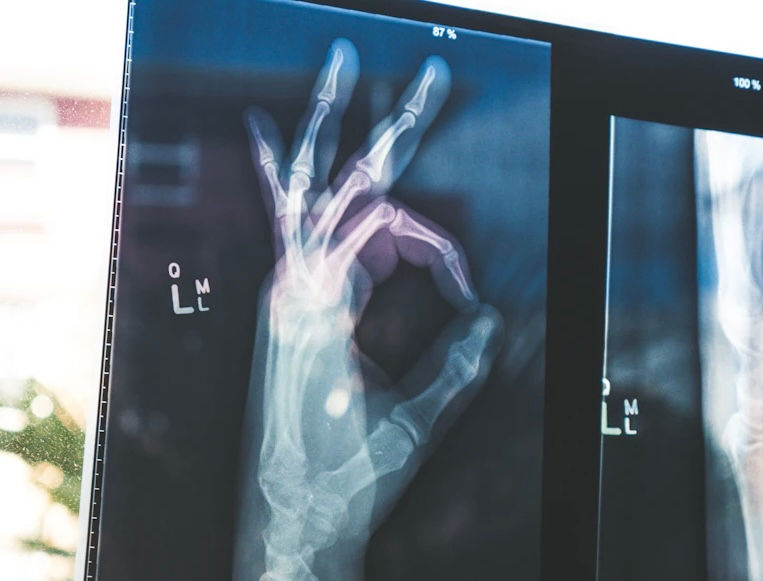The Curse of Sam and the Physically Disabled Villain
- N. Daniel

- Apr 1, 2022
- 4 min read

The Curse of Sam and the Physically Disabled Villain
For the past nine years I have been writing memoirs. I tell others who ask about my writing that I am both blessed and cursed with having survived special circumstances and ended with something worth mentioning. I recently wrote a book about my time taking care of a quadriplegic in Downtown Minneapolis and though I felt I was fair and honest in the writing, some readers were left loathing my disabled client. I will admit I did not hold back on her crassness, vulgar wit, and inappropriate behavior. That may have been enough to throw most people off. It seems showing the humanity beneath all of that negativity was the true challenge of writing my new book “Burn This City to the Ground.”
The character of Samantha is as divisive as they come. One part Will Traynor from “Me Before You” and the second part Marla Singer from “Fight Club,” Sam leaves little to the imagination about what she thinks and how she feels. She has no filter. She is blunt, brutally at times. Her idea of polite conversation is pointing out the obvious, sometimes taboo elephants in the room and then watching the people around her panic about an appropriate reaction. She is driven by her pain to pursue her own amusement at the expense of others, and who could blame her? Left paralyzed from the shoulders down and without the use of her hands so early in her life, she clearly has reasons to suffer. She is estranged from her young son which only compounds the anguish. It has caused her personality to become severe and offensive. So, my question after seeing both love and hatred for Samantha is, “Why are complex, difficult, physically disabled characters seen as villains if they don't have some sort of redemption arc in the end?”
Of course I hate to give the ending of the book away, and I am not going to do that. I will say that my conclusion with Samantha was unfortunate and toxic, which is how so many of these professional relationships end. When you live with some one you work for they become like family. The same rules, limitations and boundaries apply. Sometimes we cared for each other as grandparents care for their grandchildren. Other times we tore each other to shreds as in the worst sibling rivalry. If we are looking at a bitter fight between family members there is typically some one in the right and some one in the wrong but in the end both must resolve and love each other. After all they are family. So why is Samantha punished by my readership for being in pain, for being human, however wrong people think she is in her viewpoint? Why can't they resolve with her and see her true self? I of course blamed myself for this shortcoming.
In the end my character is not perfect. He is lazy, disorganized, untidy, so many things that would scare most paralyzed individuals away. These things are a perquisite for accepting such a position. However, when I don't meet my expectations others have said that Samantha is being harsh to ridicule me. It is fascinating how easily readers relate to me, the good natured, loyal caregiver and loath Sam, the carefree wild child with a sharp tongue and painful history. Most people are conditioned to take things at face value. After all it is a faster way to process what is happening around us. However, to see past the armor Sam has gilded, which oftentimes seems to be made of lead, requires the most damaged hearts. It is almost as though we can't see her pain without having felt something similar ourselves. This is why I feel a lot of disabled folks in literature and cinema are misunderstood. I am not Emilia Clarke when it comes to my book. We don't fall desperately in love with each other. There is no convenient ending where all the loose ends are somehow tied up in a nice bow. More often than not life doesn't work like that.
And so, Sam is vilified. She doesn't care about being a good person. She doesn't care about making a difference in the world. She is so focused on surviving it doesn't matter. The problem is she doesn't really want to survive but society dictates that she must. It is disheartening to me that she was judged harshly, even a little bit. She does not deserve that but I also know she wouldn't want to be pitied either. I almost feel like I failed her and did not shine a kind enough light on her situation. With memoir it is so easy to drop characters by the wayside, to misrepresent them and cause confusion and hurt in their lives. With some one like Sam, hurt is all she can ever see. So, to her, our story seems a collective drop in the bucket of things that have gone wrong in her life. There are so many triumphs, joys and bouts of unconstrained laughter within the pages of this book. I would hope that she remembers them, to take the good with the bad, and for you as the reader as well. Please look kindly upon my little villain and know that I loved her. I always will.



Comments